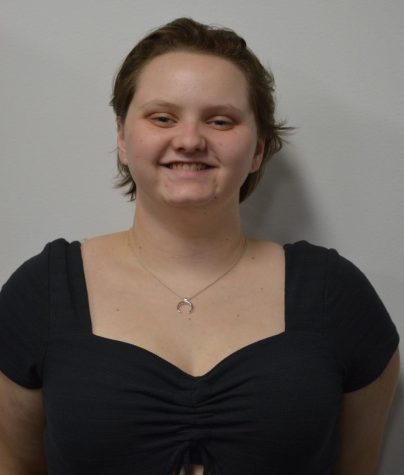Opinion: What students experience when dealing with grief
December 11, 2020
I didn’t ever think that my grandma was going to die.
I mean, of course I knew she was going to die, because we all do. However, she was my grandma, and we all just think that our family members are going to live forever because we can’t imagine a life without them.
No matter what our relationship was like, or how we felt about each other, there was still that small comfort that she was there and I could just call her and tell her about a song I had heard and loved. Even when I wasn’t seeing or talking to her, I was comforted with the idea that I knew that she must have been enjoying the sunny weather.
Her passing was such an odd shift in my world that I inevitably couldn’t focus on school. Even though school’s happening through a screen and that usually not difficult for me, school became a challenge. I could stare straight at a slideshow in history class, but I could only think about how my grandma’s best friend would react to the news of her death.
It became nearly impossible to do school, and even now, weeks after her passing, school and the ability to focus hasn’t returned to me.
A few days after I got the news, I emailed all of my teachers to tell them that I would be missing a few days during the week. I asked for extensions on current work and a bit of understanding. For a few days, my teachers checked in on me privately during class, but after a while, some of my work began to be marked as “missing” in the grade book. I sat in the chapel at my grandma’s wake while my phone buzzed with updates telling me that my grades were slipping.
According to the National Center for Grieving Children and Families, when death impacts students at school, there are a few do’s and don’ts that those involved in the school community should follow. According to the list, teachers and administrators should listen to grieving students in their roles as trusted adults and should follow routines for a sense of safety. They should set limits to give “a more secure and safe environment for everyone under these circumstances,” according to the NCGCF.
The don’ts list is longer than the do’s list. Classmates, teachers and administrators shouldn’t suggest that the student has grieved long enough, they shouldn’t tell the student to “get over it,” and they shouldn’t act as if nothing happened.
Students have been forced to be flexible more than ever before. Everyone’s lives have had to change drastically, and it’s easy to forget that normal things are happening too. You can’t cancel a death in the family.
When people had to cancel weddings during the pandemic, we sort of thought, “That stinks, but what can you do?” What do we say, though, when it takes longer than usual to get death certificates because of Covid-19? What do we say when we still have to handle my grandma’s furniture, and it has already become a complex ritual? Or when her brothers can’t be at the funeral, and everyone is so overworked that they misspell her own name on the mass cards?
This year hasn’t been easy for anyone. People everywhere have had to make really big, really difficult decisions that affect them and their families, and so it’s really hard to get out of that bubble and somehow add more concern into your life for someone or something beyond what you might know.
But grandmas aren’t going to stop dying, and kids aren’t going to stop losing them just because we miss out on the in-person elements and relationship-building aspects of school. It’s harder through a screen.
All I’m asking for is empathy and grace.
If I could only say one thing, I would tell everyone — students and teachers alike — to increase their capacity for care. You can’t afford to run out of it.
Especially this year.





